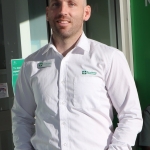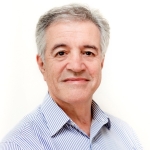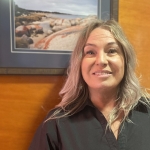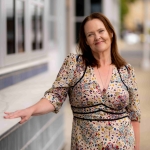Reframing addiction and putting an end to stigma
April 24, 2025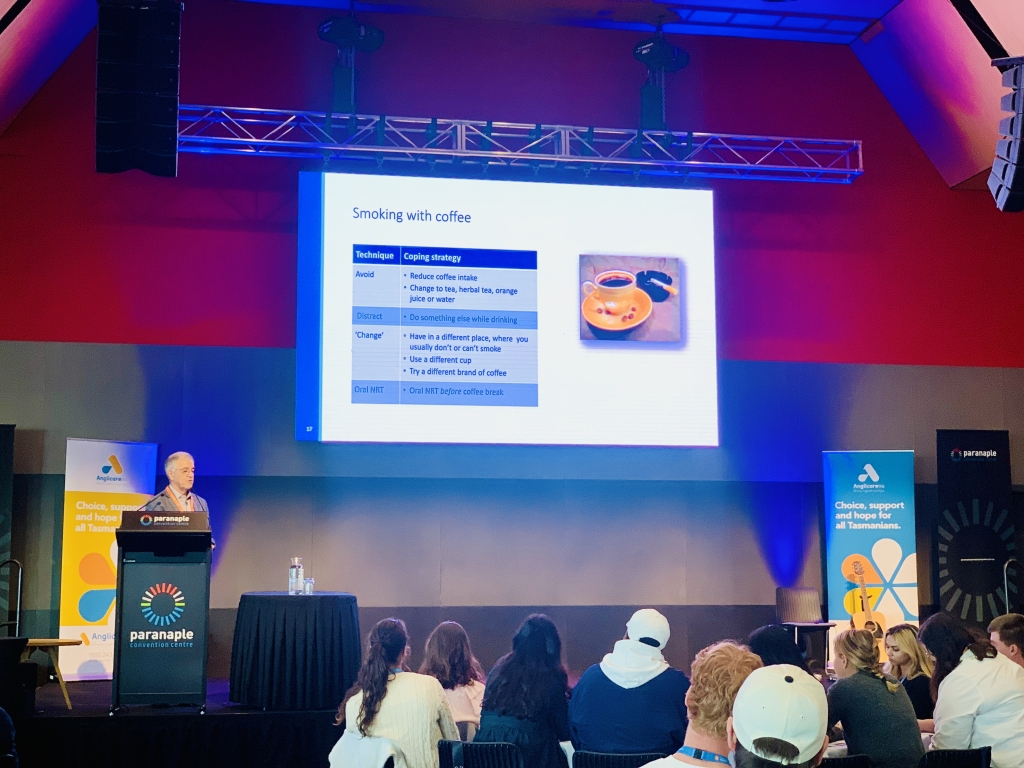
Forums hosted by Anglicare Tasmania in Devonport and Launceston earlier this month featured speakers who operate on the front line of addiction support. They threw out a challenge: to reframe the way we talk about addiction, and put an end to the stigma that is associated with it.
“The words we use are so important when we have conversations about addiction,” explained Jodie Stokes, General Manager Community Services with Anglicare.
“Negative words can have a huge impact on people’s mental health and wellbeing, which in turn can hamper their recovery. We all have a role to play in ensuring that people feel safe and supported.”
The Reframing Addiction forums were designed for practitioners, people with lived experience, policy-makers and anyone interested in how the harms of addiction can be reduced, at both an individual, family, community and systemic level.
The types of addictions covered in the forums included a wide variety of drugs and alcohol, smoking and gambling. These addictions can result in disconnection from family, friends and community, mental ill-health, and crime.
Speakers included a sector leader, medical professional, community pharmacist, health practitioners from the Aboriginal community, people with lived experience and carers, including friends and family.
The role of community pharmacies
Speaker Jack Muir Wilson, co-owner of the Wilkinson’s pharmacy in Burnie, said community pharmacies were in a unique position to support Tasmanians living with addiction challenges, particularly in regional areas.
“There are around 160 community pharmacies in Tasmania, and we are among the most trusted of professions,” he said. “It’s important that Tasmanians with addiction know where they can go for treatment and that these places are easy to access. Community pharmacies, working closely with health professionals and service providers, can provide the care and support they need.”
Mr Muir Wilson highlighted the success of a recent collaboration between his pharmacy and Sexual Health Services North/North West. A clinic was set up inside the pharmacy to provide patients with free screening for blood-borne diseases such as hepatitis C.
“We referred 16 people for treatment,” he said. “This huge win was only possible because so many of the barriers to even setting foot in a service were taken away.”
Smoking cessation: an evidence-based approach
Dr Colin Mendelsohn explained the value of prescribed e-cigarettes (‘vapes’) as a second-line therapy solution for people who have tried to stop smoking without success.
“Almost all the harm from smoking is from the 7,000 chemicals and toxins in smoke from burning tobacco,” he said. “Vaping is not risk-free, but it’s far less harmful than smoking.
“We’re seeing clinical improvements in the overall health of people who have switched to vaping, and a reduction in their risk of contracting cancer, heart and lung disease. Vaping nicotine is the most effective aid to quitting that we have and the most popular.”
Hearing people’s voices
Tina Goodwin from the Tasmanian Aboriginal Centre (TAC) shared her life story and urged support services to recognise the long history of trauma that affects many members of the Palawa community.
“It’s really important that supports are culturally safe, and that they are delivered in conjunction with the Aboriginal community,” she said. “Understanding the history, listening to people’s stories and hearing their voices are key to healing.”
Systemic change is required
Jackie Hallam is the CEO of the Alcohol, Tobacco and Other Drugs Council Tasmania, the peak body representing community sector organisations that deliver services in this area, including Anglicare.
Her message to participants was that everyone in the sector can contribute to the goal of reducing alcohol and drug-related harm and stigma.
“We need to listen to a variety of voices when thinking about what we need from services to support Tasmanians’ health and wellbeing,” she said.
“Leadership in our sector comes from all levels and the living and lived experience voice is central to getting the change we need.
“From changes to drug laws, to increased access in our regions to vital health services, all Tasmanians have a right to access healthcare free of judgement and stigma.”
Anglicare’s advocacy
Anglicare uses a public health, evidence-based approach when advocating for changes that will make a positive difference in people’s lives.
In June 2023 our Social Action and Research Centre published a paper called Action for a healthier community: an effective response to illicit drugs. It called for improved access to bulk-billed health care, the removal of criminal sanctions for the possession and personal use of illicit drugs, and safe injecting rooms in Tasmania.
Find out more about the forums here, including information on sessions and speakers:
More information about the free services offered by Anglicare Tasmania:
Anglicare manages Needle and Syringe Program (NSP) outlets in Hobart, Glenorchy and Burnie on behalf of the Tasmanian Government. The NSP program prevents and reduces the transmission of blood-borne viruses in the community – and it saves lives.
The Gamblers Help service for people who want to manage their gambling harm is free and confidential. Our professional Practitioners can help people set and achieve goals. There are related community programs that support the family members and friends of people experiencing gambling harm. People who gamble also find Anglicare’s free financial counselling service useful.
The Anglicare Drug and Alcohol Treatment Service (ADATS) is a program for Tasmanians over the age of 14 who are experiencing negative impacts from the use of alcohol and/or other drugs.
SMART Recovery is a group-based, face-to-face program that uses a variety of tools and techniques to motivate people to address any addictive behaviours. A SMART Recovery Family and Friends program is also offered.
MAIN PHOTO: Dr Colin Mendelsohn delivered a paper on strategies that support people to quit smoking.
- Jack Muir Wilson
- Colin Mendelsohn
- Tina Goodwin
- Jackie Hallam

